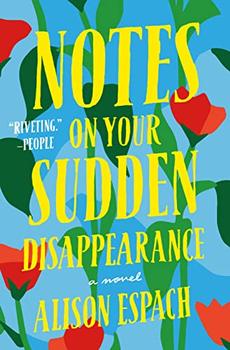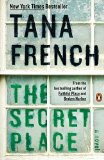Summary | Excerpt | Reviews | Beyond the book | Read-Alikes | Genres & Themes | Author Bio

After suffering unspeakable tragedies, those left behind in the rubble of heartache often must grapple with what is left. JoAnne Tompkins' novel explores how we navigate the painful aftermath of loss to hopefully discover some form of salvation on the other side.
The book begins in a small coastal town in the state of Washington. Isaac Balch tells of the events leading up to the murder of his teenage son, Daniel, at the hands of a childhood chum and neighbor, Jonah, who later dies by suicide. The boys start out as companions in their youth, but the ruthless social hierarchy of middle and high school separates them over time: Daniel is the golden boy, Jonah the awkward outcast. A thin thread of nostalgia tethers them nonetheless.
As with many young adult conflicts, Jonah and Daniel's ultimate falling out involves a girl, Evangeline. Daniel has sex with her because he can; Jonah falls for her because she actually acknowledges him, even in the cast of Daniel's golden shadow. When a pregnant Evangeline appears on Isaac's lawn following Daniel's death, it is anyone's guess as to who is the father.
Tompkins peels back the mystery of this situation to reveal the intricate, multi-layered stories of all the characters, each with their own emotional torment: Evangeline has been abandoned by her mother; Jonah witnessed his father physically abuse his mother, a trauma compounded by his father's subsequent suicide; and Isaac, vacillating between rage and sorrow, has lost both a wife to divorce and a son to murder. Additionally, Isaac struggles with his Quaker faith and how to buttress his beliefs given the breadth of his loss.
Although Tompkins' characters are believable and worthy of investment in themselves, it is her deft handling of trauma, grief and loss that truly resonates with the reader. Her keen ability to capture what it means to be vulnerable and what it feels like to be skinned by loss is laudable. At times, the plot's sequence of events seems too neatly coincidental; however, the portrayal of overriding hope for the characters' redemption and salvation makes this a forgivable flaw.
The book's religious underpinnings raise the question of what might provide absolution in the face of misdeeds and missteps. Tompkins' exploration of universal tropes such as good versus evil, the value of silence versus communication and hope in the face of despair serves as a touchpoint to the qualities that make us all fallible. Readers who find themselves drawn to philosophical questions of humanity will get swept up in the author's examination of how to heal in the face of immeasurable wounds.
Tompkins also focuses on the seeds of evil that may lie dormant in us, posing the question, "Doesn't evil and its violence stalk us all, forever seeking points of entry?" She also mines for antidotes to these qualities. Ultimately, What Comes After is a work that contemplates the paradoxes of living in a world plagued with evil, yet blessed with benevolence. It is the interconnectedness of the characters that allows them to forge on in a life that sometimes seems untenable. Each possesses the grit to move forward, despite being mired in trauma, with the help of others.
What Comes After is a reminder that one's existence is but a thread in the fabric of all that is living and deceased. In short, life is quite painfully beautiful.
![]() This review was originally published in The BookBrowse Review in May 2021, and has been updated for the
May 2022 edition.
Click here to go to this issue.
This review was originally published in The BookBrowse Review in May 2021, and has been updated for the
May 2022 edition.
Click here to go to this issue.

If you liked What Comes After, try these:

Notes on Your Sudden Disappearance
by Alison Espach
Published 2023
From Alison Espach, author of the New York Times Editor's Choice novel The Adults, comes a dazzlingly unconventional love story for readers of Ask Again, Yes and Tell the Wolves I'm Home.

by Tana French
Published 2015
The sensational new novel from "one of the most talented crime writers alive" (The Washington Post)
Your guide toexceptional books
BookBrowse seeks out and recommends the best in contemporary fiction and nonfiction—books that not only engage and entertain but also deepen our understanding of ourselves and the world around us.